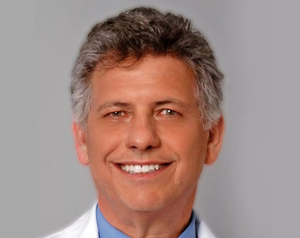
The dermatology team at Allan Mineroff, MD, PC recommends acne treatments based on the severity of your acne and your personal needs. There are numerous options, and you might need to try more than one before finding an effective acne treatment.
Your options include:
- Topical products many topical medicines for the skin contain acne-fighting ingredients, with benzoyl peroxide, retinoic acids, and salicylic acid being among the most common.
- Oral medications The team at Allan Mineroff, MD, PC also routinely prescribes oral medications to assist with controlling acne, like combined oral contraceptives, spironolactone, or oral antibiotics. Isotretinoin therapy involves an oral medication too and is reserved for severe acne.
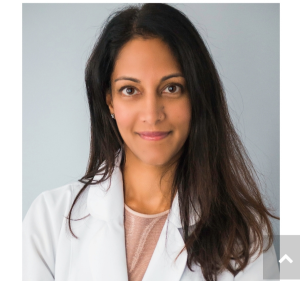
The etiology of acne is multifactorial and often related, in adults, to hormonal shifts. I treat many women in there 30s and 40s for hormonal acne and have found that even if they do not have abnormal hormonal laboratory values, one can suspect a hormonal component if there is flaring around the menses, or in the peri-menopausal period or if they have recently changed, started or stopped the oral contraceptive pill. If an oral contraceptive is not preferred by a patient, oral spironolactone is very effective in controlling hormonal breakouts in women by normalizing the androgen excess. In addition, this can help with hair loss which can also occur in these patients. Some patients prefer herbal supplements to help normalize their hormones and one such option is chasteberry which can be used alone or in combination with spironolactone. Others prefer not to be on an oral medication at all, and in these patients I will combine spironolactone with other anti-acne medications as an all in one topical treatment. Stress is a major factor that results in increased cortisol spikes as well as testosterone surges, which also promote acne flares. A proper diet and lifestyle modifications that lead to reduced stress such as exercise, meditation and enough sleep can also help over time. As always, I recommend speaking to a board-certified dermatologist to find out the right option for you.

Before
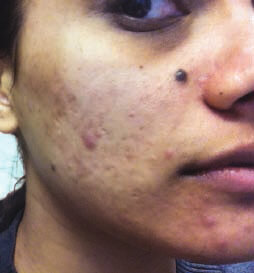
After
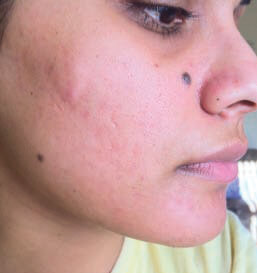
Before
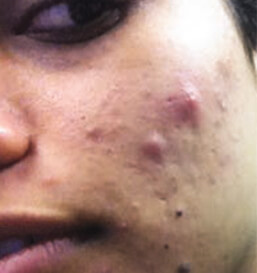
After
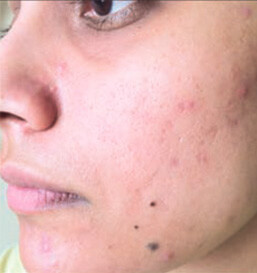
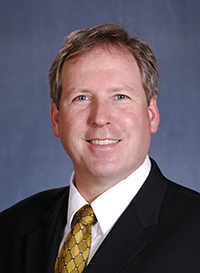
Acne is not a condition limited to teenagers. Many adults also experience acne for a variety of reasons.
At its core, acne is caused when a hair follicle or pore fills with oil produced by the sebaceous gland. Acne can appear as whiteheads, blackheads, small red lesions, pustules, or cysts. Acne is most noticeable on your face, but it can also occur on your chest, back, legs, arms, or shoulders.
Several medications can be used to treat acne. Benzoyl peroxide helps to break down blemishes and kill the bacteria that cause acne. Topical retinoids such as Retin-A, Differin, and tretinoin are also used to eliminate pimples. Topical anti-inflammatory agents such as clindamycin may be appropriate for some patients.
Patients with “deeper” acne may require oral antibiotics such as doxycycline and minocycline to diminish the redness and irritation, heal the acne area and prevent more from occurring. In patients with the most severe forms of acne, isotretinoin may be required.
Some patients may respond to Blu-U/Photodynamic Therapy, a non-invasive, non-toxic method of treating acne. Your dermatologist can help you decide which approach is best for your acne treatment.

Acne is the most common skin disease, afflicting 85% of the American population at some point in their lives.
For some individuals, acne may be persistent or severe enough to cause scarring and warrant prescription therapy. In many circumstances, however, acne is a relatively mild affliction that can be treated with over-the-counter (OTC) medications. The two main ingredients in OTC acne preparations are salicylic acid and benzoyl peroxide.
Salicylic acid is commonly found in acne washes and spot treatments. Acne lesions form when proteins, called keratin, plug hair follicles in the skin. Salicylic acid works by peeling the top layer of the skin and dissolving the keratin that is plugging the follicles. It is a relatively weak treatment, but can help in the milder forms of acne. Slight dryness and peeling skin can be side effects of salicylic acid.
Benzoyl peroxide (BP) attacks acne in several ways. The compound unplugs hair follicles, reduces inflammation and kills the skin bacteria that cause pimples to become inflamed. BP can be found in OTC products as a wash or gel formulation. Some prescription medications, such as Duac® and Epiduo®, contain benzoyl peroxide in combination with other anti-acne medications. Washes that contain BP are especially useful in treating acne on the back and trunk. Gels are best used as “leave-on” therapy for facial acne. Be careful when using benzoyl peroxide products, as they can bleach colored fabrics. Other potential side effects include skin irritation and allergy, with peeling, redness and itching.
OTC treatments come as single products, or grouped together in kits that provide a step-wise treatment regimen. There is no ideal product or kit for every patient, rather the best products are the ones that suit each individual’s preferences.
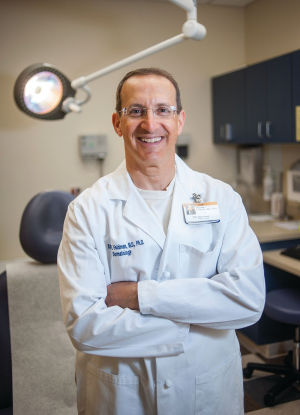
Over-the-counter benzoyl peroxide is a reasonably potent first line acne treatment and is available inexpensively in OTC preparations. It's a very reasonable first start for treatment.
Prescription medications include:
A. Topical vitamin A related medications (tretinoin [available generic and in several brand name formulations], adapalene [Differin®], tazarotene [Tazorac®])
B. Topical antibiotics (erythromycin and clindamycin)
C. Various oral antibiotics,
D. Hormonal treatment (birth control pills, for women)
E. Oral isotretinoin
For patients with relatively mild acne, a topical vitamin A medication with a topical antibiotic can be used. Bacteria can become resistant to antibiotics, but combined use with a benzoyl peroxide product helps prevent resistant organisms from developing. This topical approach is the foundation of treatment.
For more severe acne, oral antibiotics are used, possibly with birth control pills for women.
Because combining multiple treatments makes using the medications complicated for patients, combination drugs that combine multiple agents may simplify the treatment (Epiduo®, Ziana®, Benzamycin®, Benzaclin®, Duac®).
For patients with severe, scarring acne that is unresponsive to these treatments, oral isotretinoin is often like a miracle. Unfortunately, it has many side effects, the worst of which are severe teratogenicity (causing birth defects) and depression."

In my view, over-the-counter acne medications may work for mild acne, however, many of these formulations are harsh. Under the expert care of a dermatologist, skincare regimens may be customized according to skin type. Thus, patient compliance is much greater by maximizing treatment results and minimizing side effects of acne treatment.
There are certain physician-dispensed acne treatment protocols that include highly effective products that cannot be obtained through prescriptions or pharmacies. Use of these specialized acne treatment protocols along with oral or systemic therapies frequently yields superior patient outcomes. Also, when medicines are not sufficient alone, the dermatologist is there to intervene with more effective adjuvant procedural management of more stubborn acne.

Here are a few basic things I think you need to know about your acne.
- Many doctors will "grade" your acne, and tell you that you have mild, moderate, or severe acne. What is more important that the "grade" of your acne is the way that you feel about the acne. It is our job as dermatologists to make sure you feel great about your skin!
- Acne starts with clogged pores. The pores are not clogged with dirt, but rather with dead skin cells that became lodged during their natural shedding process.
- The way to get to the 'roots' of treating your acne is to prevent your pores from getting clogged in the first place - and this is done with medications (both topical and oral) that contain Vitamin A.
- Oral Vitamin A is called accutane - and due to several potential side effects I use this medication only in severe or resistant cases.
- Topical Vitamin A is commercially named Retin-A. I think that nearly everyone who is not pregnant or nursing should be on a product like this. It can help you prevent pimples, prevent and improve wrinkles, and even prevent some types of skin cancer.
- When first using the medication, it can be irritating (especially the commercially available version). To help mitigate these drying affects, I suggest you use "one pea sized dot" of cream to cover the ENTIRE face. This is not a spot treatment. Remember - it is going to help prevent pimples from forming... and you don't know where they are going to pop up next.
- Many insurances will not cover Retin-A, and it can be expensive. Often in excess of $200 for a prescription. If your insurance doesn't cover the medication, or if you find the medication too irritating - let your doctor know. She or he might have some alternatives that are less expensive and much more tolerable (and possibly more effective).
In addition to a topical vitamin A, you will likely need additional acne treatments to help your pimples clear up. These need to be tailored to your specific needs, but may include antibiotics, special soaps, chemical peels, as well as other medications.
If you want to get your acne cleared up ASAP, than your doctor may also offer procedures in the office to help you.

Come on, it's just acne... Right!!? Acne is one of the toughest things we daily treat -- plain and simple.
Mild early acne can be treated however you want, and usually is. Nearly every acne patient I see in consultation has tried nearly every OTC medication there is out there. I hear daily: 'It worked for a while, and I spent a whole lot of money on it, but it just ain't workin' no more.'
Acne is very, very common, and for the most part just runs its course in adolescence, but, unfortunately, this is critical time in the patient's life when they are so self-conscious about nearly every little thing and trying so hard to adapt to the physical and emotional changes happening in their world that threaten to keep them from 'just fitting in'.
We have so much to offer acne patients these days with so many prescription topical medications, oral antibiotic therapies, physical cleansing options, organic topical therapies, hormonal therapies, augmenting therapies such as aldactone, chemical peels, and Intense Pulse Light therapies with modalities such as the Isolaz (which we use in our practice) that I just can't wait to get started when a new acne patient comes in.
Then there's adult acne with all its unique challenges that OTC treatments can't even begin to touch, in my experience. My recommendation without a doubt is: 'When you want to get serious about treating your acne, see a Doctor who specializes in skin care!'

Topical retinoids (Differin®, Epiduo®, Retin-A®, Tazorac®, .... etc) are a must in most all acne treatment regimens.
They are part of the foundation for most acne treatment. All acne lesions start as a clogged pore (comedone), and effective acne therapy requires the removal of this clogged orifice (comedolysis). Retinoids continue to be our most effective topical medicines for this. Additionally, they have anti-inflammatory properties that further help to decrease the red pimples and pustules of acne.
The first 1-2 months of starting any retinoid will be an adjustment period for your skin. Most people's skin will get dry, red, and mildly irritated. For some people, this can be quite severe. I tell my patients to follow these steps:
At night, after brushing your teeth, wash your face and pat dry. Sunlight may breakdown retinoids, so they are best to apply at night. I find medicine spreads easier and is less irritating on moist skin.
While your face is still moist, apply a small "finger tip" amount of medicine in small dots around the face, then spread over the whole face to a thin film. Be careful to avoid the sensitive skin under the eyes, next to the nose, and the in corners of the mouth.
After rubbing the medicine in well, apply a moisturizer of your choice. Reapply the moisturizer in the morning, along with a daily sunscreen.
If you find your skin becoming very irritated, hold the medicine for a few days, then start applying it only 2-3 times per week. Increase application by 1 day per week every few weeks as tolerated. For patients with sensitive skin, I often start them at this 2-3 times per week regimen.
For some very sensitive skin, we may use short contact therapy. This means applying the medicine for 15 minutes before washing it off, and slowly increasing over time as tolerated.
Remember -- this is medicine, not magic. Acne may initially get a little worse in the first 2-4 weeks of treatment. Continued improvement may occur for up to 4-6 months! So be patient and persistent!
Many people may become dry, red or peeling during the first 1-2 months until they fully adjust to the retinoid. This is a sign of the medicine working effectively. Be sure to moisturize regularly with a ceramide containing moisturizer (such as Cerave®, Cetaphil Restoraderm and Aveeno® Eczema Therapy.

Over-the-counter acne products are only useful for people with very mild comedonal acne.
Once the comedone stage is passed, and numerous open or closed comedones, or inflammatory lesions appear, prescription products are necessary.
Visit Dr. Marta Rendon's website at Dermatology and Aesthetic Center.
Source: Vivacare
Last updated : 2/10/2023